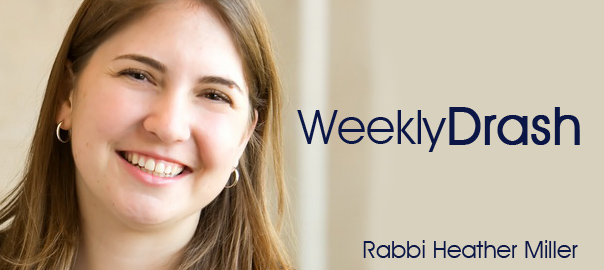Planting Seeds of Promise: Tu Bishvat Drash

By:Rabbi Heather Miller
Shabbat Shalom!
How many of you have ever looked inside of an apple? I mean, really looked inside of an apple? If you cut it like this, look what you find inside? (A STAR!)
Aren’t trees amazing?
That’s what this week’s holiday of Tu B’Shvat is about. Appreciating trees and shrubs and bushes and vines and flowers and fruits and vegetables and even weeds.
We celebrate them because they make the world go around. They recycle our air and give us freshly produced oxygen for us to breathe. What else do they do?
They give us shade on hot sunny days and shelter on windy and rainy days. They allow us to build things like– the sanctuary (the reclaimed beams) and the furniture inside (like the chairs and lecterns). They give us delicious treats– did you ever have a frozen grape? Or a strawberry tart, or any kind of pie?
Trees are beautiful because of what they are but also because of how they grow and what they represent.
For example: How do fruit trees grow? A seed is planted and over time it sprouts and grows bigger and bigger until it bears fruit.
In this way, they remind us to think carefully about what we plant in our own lives, what we tend to and nurture, knowing that whatever we give our care and attention to will be that which bears fruit for us. Are we spending our time on endeavors that will bear fruit that we will enjoy? Something to consider.
There is a famous story (Babylonian Talmud Ta’anit 23a). On a cool winter evening like this, a man named Choni saw a man planting a carob tree. “HEY YOU!” he said to the man planting. “Don’t you know that carob is one of the few trees that don’t bear their fruits for 70 years! Why are you planting that tree? You don’t possibly think that you will be around in another 70 years to enjoy the fruit, do you?” “Ahh..” said the man. “Choni, I am not planting the tree so that I will enjoy it. I am planting a tree so that my children can enjoy its fruit!”
Isn’t it amazing that sometimes the things that we plant today will be around long after we are.
Earlier this week, a man came to me to inquire about Judaism. He was raised in a devoutly Catholic family, but he explained, he is a converso– one of thousands of people whose ancestors were Spanish Jews but had been forced to convert in the 1400s. For over 500 years, members of his family continued to secretly light candles on Friday nights in the basement.
The seed of Judaism had gone dormant for generations much like flower bulbs in the winter time, but today he approached a rabbi to proudly reacquaint himself with his Jewish identity, just as that bulb sprouts and eventually blossoms in the spring.
People like Harriet Perl (the school teacher who insisted that we use gender inclusive pronouns in our prayerbook) and Debbie Friedman (an incredible Jewish musician and composer of many of the melodies we use in services today), may their memories be for a blessing, remind us, too, that each person can make important contributions on the family tree of society that can be felt for generations to come. They planted seeds a long time ago that are bearing fruit today.
In this week’s Torah portion, we learn that Jethro advised his son-in-law Moses to appoint judges to help him decide cases for the millions of Israelites he was leading. Jethro planted the seed that our judicial system is based upon– namely lower courts appealing to higher and higher courts. Similarly, Dr. Martin Luther King, Jr. planted the seeds of love in the world that would later bear the fruit of the election of the first black president- a symbol of the progress toward a more open and inclusive America for us all.
We can expect fruits to be born from the values that we plant and tend to today. So, this Shabbat and every week, let us ask ourselves: what have we planted this week? And will our efforts ensure a bright, positive future?




